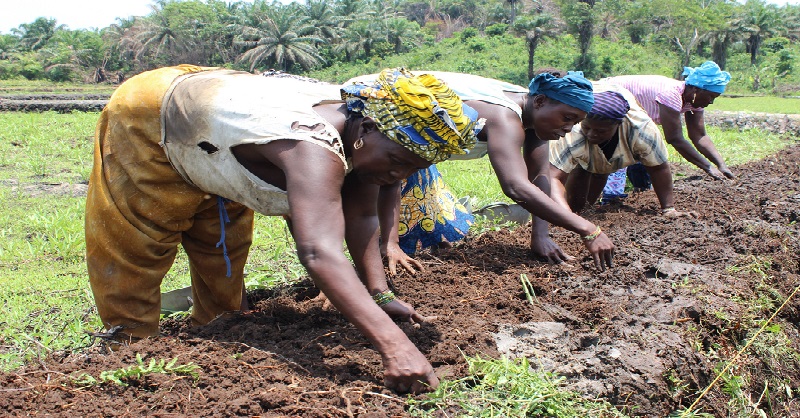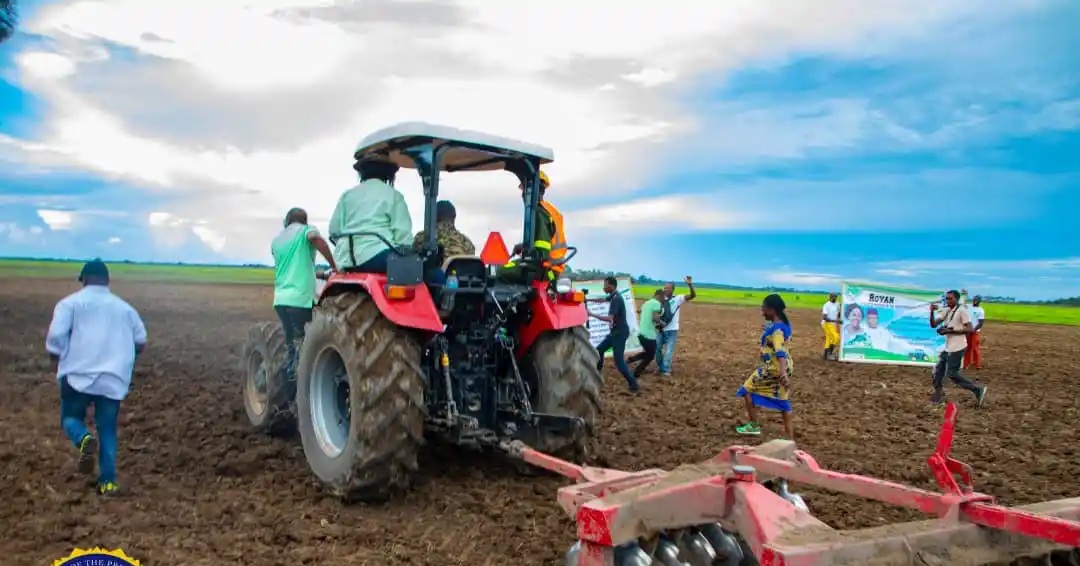A few weeks ago, I read where His Excellency, President Julius Maada Bio, returned from an overseas trip with an agreement to purchase three million tons of rice over the next three years from the Socialist Republic of Vietnam. This seems to have been a well-calculated transaction.
Sierra Leoneans consume about two million (2,000,000) tons of rice a year. We grow about 1 million tons domestically per year. So, the one million tons per year we are buying from Vietnam should close the gap between what we eat and what we grow.
But the question is, why are we buying rice from Vietnam, in the first place? Why are we spending about US$250 million of our scarce national reserve on importing rice at all?
About five years ago I was invited as a guest speaker and panellist on food and hunger held by the Department of Agriculture at my Alma Mater, the University of Illinois at Urbana-Champaign, the de facto parent institution of Njala University. During the Question-and-Answer session at the end of my presentation, a gentleman in the audience asked me a pointed question: why are you (Sierra Leone) hungry?
Recognizing him as one of the visiting professors providing academic and financial support to Njala University, I was lost for an answer. A rather juvenile answer would have been because we don’t have enough food. This, of course, would beg the question, why don’t you have enough food? The answer would be because we don’t grow enough food. The logical follow-up question then would be, why don’t you grow enough food?

Sierra Leone is blessed with about 13 million acres of farmland. That is approximately two acres for every man, woman, or child in the country. We are located on the Atlantic west coast of Africa about 10 degrees north of the equator with almost 200 miles of tropical coastline stretching from the northeast border with Guinea to the southwest border with Liberia.
We have seven large rivers from the Great Scarcies separating us from Guinea to the Mano River separating us from Liberia. In between are the Little Scarcies, the Rokel, the Jong, the Sewa, and the Moa Rivers. These are interwoven with smaller rivers like the Tabe, the Taia, the Waje and others. Half of our population is between 15 and 50 years of age. We are not in the Sahel Region of Africa.
We have no real experience with natural disasters like earthquakes, tsunamis, monsoons, or tornados prevalent in other parts of the world. But we do have gold, diamonds, bauxite, titanium, iron ore, and 80 inches of tropical rainfall a year. In short, we are God’s Favourite Country (GFC-SL).
Yet according to the Global Hunger Index, Sierra Leone ranks as the tenth hungriest nation in the world. So why is Sierra Leone hungry? Reasons range from the eleven-year civil war that ended 20 years ago, to the two-year Ebola Virus Disease that ended six years ago, to the three-year-old COVID-19, and now the war in Ukraine. There is, or should be a popular song called, “Oh Salone.”
Who said that it was easy being God’s Favourite Country?
If it appears to some partisans as a swipe at President Bio’s effort to reduce hunger in the country, I plead guilty by reason of complicity. I am a bonafide agricultural engineer trained in agricultural mechanization. I live in RoKupr, Kambia, home of the Sierra Leone Agricultural Research Institute (SLARI) on the Great and Little Scarcies River axis.
President Bio is not a farmer, although he does seem to have a marginal interest in farming. So perhaps, I, more than he, should answer the question of why Sierra Leone is hungry. The answer is that there is no reason.
The sixteenth American President, Abraham Lincoln from my former home state of Illinois, once said that he or she who has the willingness to help has the right to criticize. Since my retirement from building tractors, cars, and car parts in the United States seven years ago, I have been a commercial farmer, from Bo District to Tonkolili District and now in Kambia District.

So let me borrow from another great American president, John Fitzgerald Kennedy, “Let the word go forth from this time and place” to His Excellency, Retd. Brigadier Dr. Julius Maada Wonie Bio, that the people of the Scarcies River Basin alone, that is, Kambia, Karene, and Port Loko Districts, can provide Sierra Leone with two million tons of rice a year without prejudice to our friends in Vietnam.
The one-time cost for this proposal is one hundred million dollars (the US $100,000,000). This will be used as follows: fifty thousand (50,000) tons of seed rice; one thousand (1,000) tractors not less than 70 horsepower each, with attachments, one hundred (100) combine harvesters, fertilizer, and other inputs.
We will need a team of researchers and staff from SLARI and some men and women from the Eleventh Infantry Battalion in Kambia backed by law enforcement officers to secure state property.
With those, and our Paramount Chief Representatives in the Region as moral guarantors, we can employ at least one thousand (1,000) youths to make Sierra Leone self-sufficient in food in less than three years, without depleting our foreign currency reserves. Sir, yes, Sir!











